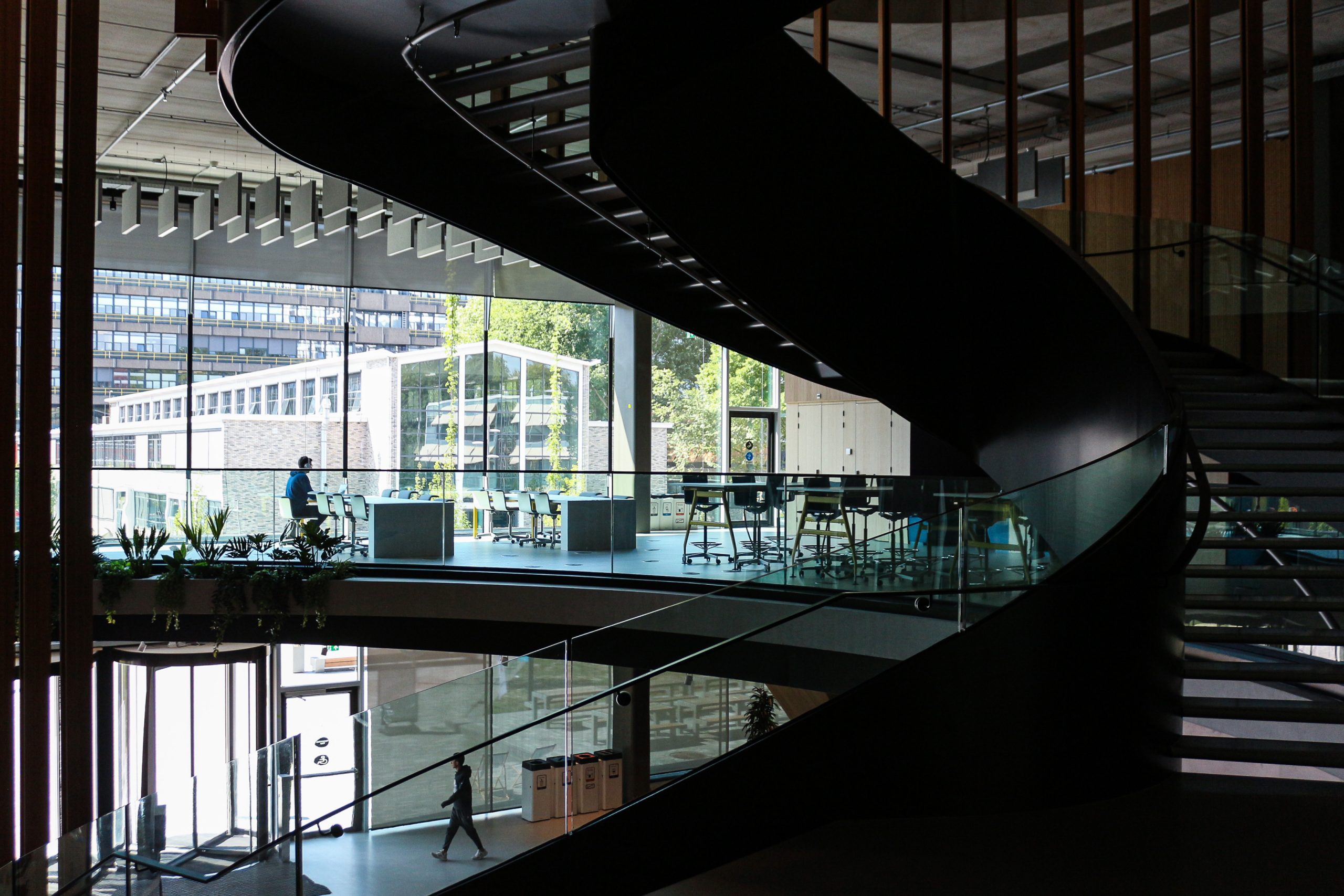Unions are disappointed that the negotiations for the collective labour agreements for universities have been difficult. Universities are reportedly reluctant to talk about social safety in particular.
The ECHO building on the TU Delft campus. (Photo: Justyna Botor)
Unions are disappointed that the negotiations for the collective labour agreements for universities have been difficult. Universities are reportedly reluctant to talk about social safety in particular.
A small group of union members protested in Utrecht against the failure to reach a collective agreement for universities last week. The negotiations, which already started in March, have continued on Friday. Social safety seems to be a stumbling block. FNV administrator Bernard Koekoek says there is administrative unwillingness.
Not seriously
Several universities have made the news because of undesirable behaviour, says Koekoek. “Meanwhile, five negotiation rounds are behind us, but they still don’t get it’s time to take action. If you ask me, that means they’re not taking their employees seriously.”
What the unions want? Koekoek mentions a ban on a ‘secrecy clause’ that keeps misconduct under wraps. He also calls for lower thresholds for employees that report problems and reinforcement of the structure around the ombuds officer and confidential advisor.
“We’re open to it”
Do the universities reject this? No, says Ruben Puylaert, spokesperson of employer association Universities of the Netherlands (UNL). “We’re open to making agreements about it. But the collective agreement negotiations are still ongoing, so the outcomes are obviously not clear yet.”
‘It’s unacceptable for staff and students to be confronted with undesirable behaviour’
He can’t say in which area there’s a difference of opinion between the administrators and the unions. “Just like the employee organisations, UNL wants to improve social safety at universities”, he states. “It’s unacceptable for staff and students to be confronted with undesirable behaviour.”
The talks with the unions are “part of a broader package of measures in the area of social safety”, says Puylaert. The universities are working on a joint plan of action. The Ministry of Education, Culture and Science also has a programme on social safety, in which UNL works together with unions, students and other stakeholders to develop an “integral approach” to social safety.
Temporary contracts
Temporary contracts are another matter. According to the unions, it’s more difficult to speak out against misconduct if you’re on a temporary contract. Earlier, it was agreed that Universiteit need to hire more people permanently.
But the elections may get in the way: the upcoming cabinet wants to rescind this money. What this means for the increase of the number of permanent contracts isn’t clear yet. The universities plan to fight the upcoming cabinet’s cutback plans, says UNL spokesperson Puylaert.
HOP, Bas Belleman/Delta, Kim Bakker
Response TU Delft
TU Delft spokesperson joins UNL in a response to the unions’ statements. Working out the change plan that the TU submitted to the Inspectorate of Education in mid-May has the ‘utmost priority’. Talks on this are ongoing with the unions, among others, the spokesman said. These ‘concern the full breadth of social safety, including the related concerns and the way forward we want to travel together to achieve the necessary culture change’.
- The local trade unions spoke to the Executive Board on June 24. Delta reported on their meeting: Unions continue to stress baseline measurement, contact point and assessments.
- Read the news and background articles on social safety at TU Delft and the report in our dossier.
Do you have a question or comment about this article?
redactie@hogeronderwijspersbureau.nl


Comments are closed.